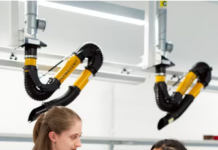The evolution of e-learning has transformed the landscape of education, offering innovative digital solutions that enhance learning experiences, promote accessibility, and adapt to diverse learning styles. From traditional online courses to immersive virtual classrooms, the journey of e-learning has been marked by technological advancements, pedagogical innovations, and a shift towards personalized and interactive learning environments.
The Rise of E-Learning Platforms
- Online Learning Platforms: The early stages of e-learning were characterized by the development of online learning platforms, where course materials, lectures, and assessments were delivered digitally. Learning Management Systems (LMS) such as Moodle, Blackboard, and Canvas emerged as popular tools for educators to create, manage, and deliver online courses. These platforms provided flexibility, convenience, and scalability, enabling learners to access educational content anytime, anywhere.
- Interactive Multimedia Content: As e-learning evolved, the integration of multimedia elements such as videos, animations, simulations, and interactive quizzes enriched the learning experience. Multimedia content made learning more engaging, interactive, and effective, catering to diverse learning preferences and enhancing knowledge retention. Gamification techniques, badges, and rewards incentivized learner participation and motivation.
Digital Education Trends and Innovations
- Adaptive Learning Technologies: Adaptive learning technologies utilize data analytics, artificial intelligence (AI), and machine learning algorithms to personalize learning experiences based on individual learner profiles, preferences, and performance. These technologies assess learner proficiency, adapt content delivery, and provide targeted interventions to address learning gaps. Adaptive learning platforms like Khan Academy, Duolingo, and Coursera offer personalized learning paths and real-time feedback to optimize learner outcomes.
- Virtual and Augmented Reality (VR/AR): Virtual and augmented reality technologies are revolutionizing e-learning by creating immersive and interactive learning environments. VR simulations and AR applications enable hands-on experiences, virtual field trips, and experiential learning opportunities that bridge the gap between theory and practice. Educational institutions and training programs leverage VR/AR for simulations, virtual labs, medical training, and skill development across various disciplines.
The Impact of Digital Education Trends
- Accessibility and Inclusivity: Digital education trends have improved accessibility and inclusivity in education by breaking down geographical barriers, accommodating diverse learning needs, and supporting learners with disabilities. Online courses, open educational resources (OER), and mobile learning apps empower learners to access educational content remotely, participate at their own pace, and engage with interactive materials tailored to their needs.
- Lifelong Learning and Continuous Professional Development: E-learning trends promote lifelong learning and continuous professional development by offering flexible, self-paced, and on-demand learning opportunities. Professionals, educators, and lifelong learners can acquire new skills, update knowledge, and pursue certifications through online courses, microlearning modules, and virtual workshops. Digital badges, credentials, and microcredentials validate learning achievements and enhance career prospects.
Future Directions in E-Learning
The future of e-learning is shaped by emerging technologies, pedagogical approaches, and learner-centric strategies that prioritize engagement, collaboration, and outcomes:
- Artificial Intelligence and Personalized Learning: AI-powered adaptive learning systems will continue to evolve, offering personalized learning pathways, intelligent tutoring, and data-driven insights into learner progress. Natural Language Processing (NLP) technologies enable conversational interfaces, chatbots, and voice-enabled learning experiences that enhance learner engagement and interaction.
- Blockchain and Credentialing: Blockchain technology is transforming credentialing and certification processes in e-learning, providing secure, verifiable, and decentralized digital credentials. Blockchain-based platforms like Learning Machine, Blockcerts, and Accredible enable learners to showcase achievements, share credentials across platforms, and verify credentials with employers and institutions.
Conclusion
The evolution of e-learning has been a journey of innovation, empowerment, and transformation in the field of education. Digital education trends, from online learning platforms to adaptive technologies and immersive experiences, have reshaped how we teach, learn, and collaborate in the digital age. As we look towards the future, the convergence of emerging technologies, pedagogical best practices, and learner-centered approaches will continue to drive the evolution of e-learning, making education more accessible, engaging, and impactful for learners worldwide.



























